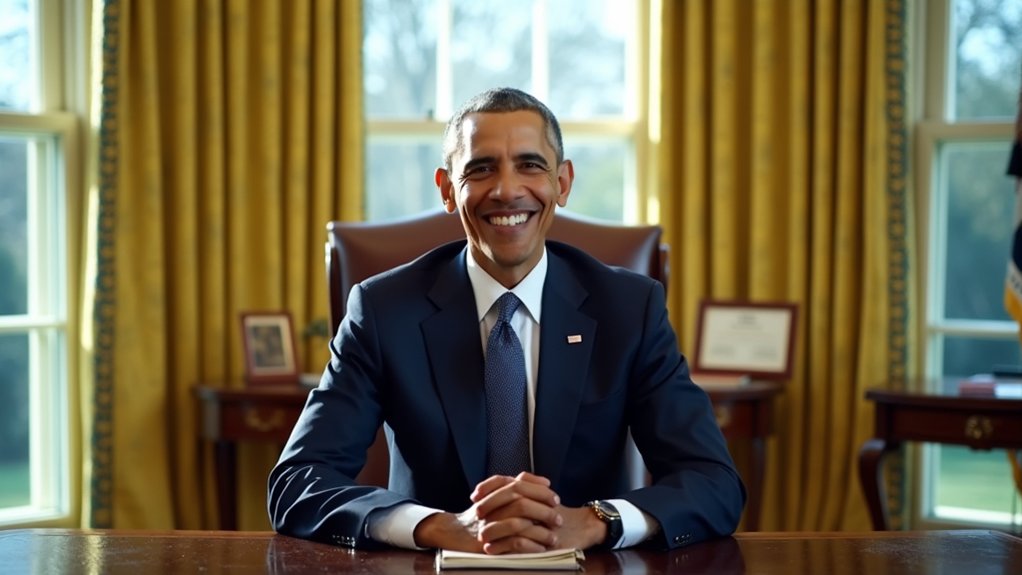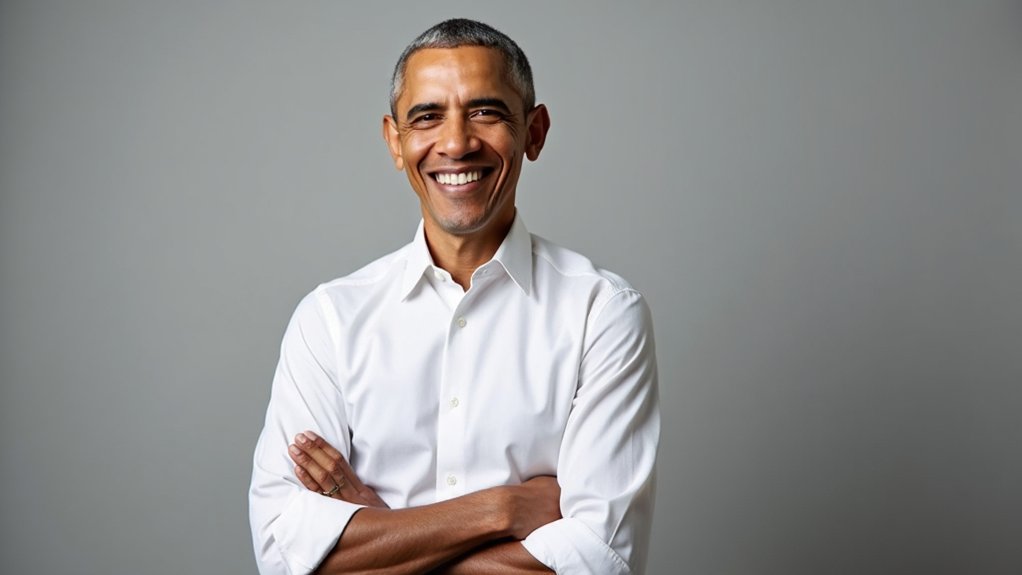Barack Obama served as the 44th President of the United States from 2009 to 2017, becoming the first African American to hold this office. Born in Honolulu, Hawaii in 1961, he graduated from Columbia University and Harvard Law School, where he became the first Black president of the Harvard Law Review. His presidency featured landmark achievements including the Affordable Care Act, economic recovery measures following the 2008 financial crisis, and the 2009 Nobel Peace Prize, with his extensive legacy extending far beyond these notable accomplishments.

Barack Hussein Obama II, the 44th President of the United States and the first African American to hold the nation’s highest office, transformed American politics through his historic presidency from 2009 to 2017.
Born August 4, 1961, in Honolulu, Hawaii, Obama’s multicultural background shaped his worldview, with his mother originating from Kansas and his father from Kenya. During his childhood, he spent time in Indonesia before returning to Hawaii for his education. His educational journey took him through Columbia University, where he graduated in 1983, followed by Harvard Law School, where he achieved the distinction of becoming the first Black president of the Harvard Law Review. Before entering politics, Obama worked as a community organizer in Chicago, establishing connections that would prove instrumental in his political career.
Obama’s multicultural heritage and academic excellence at Columbia and Harvard shaped his path from community organizer to political leader.
Obama’s political ascent began with his election to the Illinois State Senate in 1996, followed by his successful U.S. Senate campaign from Illinois in 2004. His presidential victory in 2008 marked a watershed moment in American history, as he defeated John McCain with 53% of the popular vote and 68% of the electoral vote, subsequently winning re-election in 2012 against Mitt Romney.
The Obama administration’s domestic policy achievements were substantial and far-reaching. The Patient Protection and Affordable Care Act, signed into law on March 23, 2010, represented his signature legislative accomplishment, expanding healthcare access and protecting individuals with preexisting conditions. Additionally, he enacted the American Recovery and Reinvestment Act to combat the 2008 economic crisis, a stimulus package considered over 50% larger than the New Deal in constant dollars.
The Dodd-Frank Wall Street Reform and Consumer Protection Act, implemented in 2010, addressed financial sector regulation, while Obama also signed permanent tax incentives for startups and 18 tax breaks for small businesses.
Obama’s foreign policy initiatives included signing the New Strategic Arms Reduction Treaty with Russia in April 2010, ending U.S. military involvement in Iraq in 2011, and ordering the successful mission that resulted in Osama bin Laden’s death. His administration pursued diplomatic normalization with Cuba, though his foreign policy reorientation faced criticism and remains subject to expert debate.
Economic recovery efforts encompassed stimulus investments in education, infrastructure, and alternative energy, alongside technology initiatives including the Open Data Initiative, which released over 200,000 government datasets for public use. Obama championed broadband access through ConnectED and ConnectALL programs while enforcing net neutrality protections and signing the largest annual increase in research and development funding in U.S. history. His presidency notably prevented a catastrophic second Great Depression through decisive action during the 2009 financial crisis.
Recognition for his leadership included the 2009 Nobel Peace Prize, making him the fourth U.S. president to receive this honor. Obama left office on January 20, 2017, succeeded by Donald Trump, leaving behind a complex legacy of healthcare reform, financial regulation, and cultural transformation that continues to influence American political discourse.









